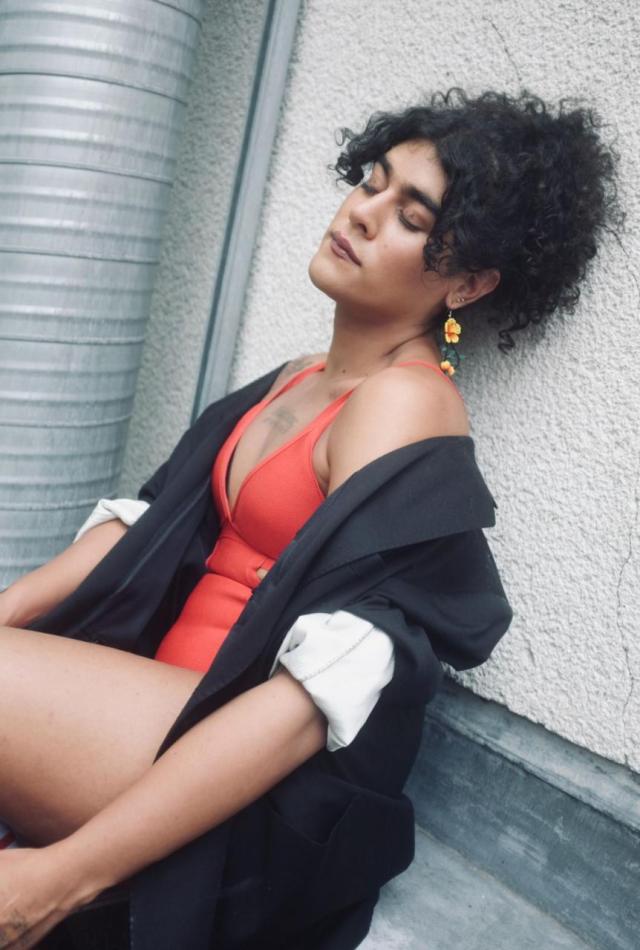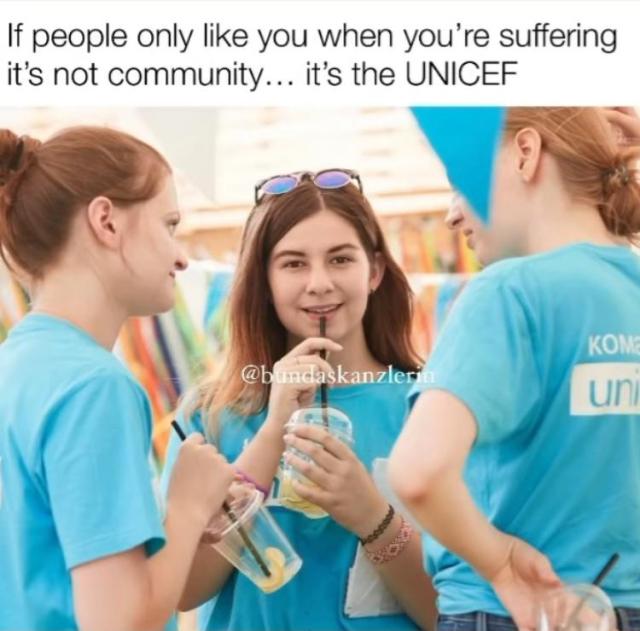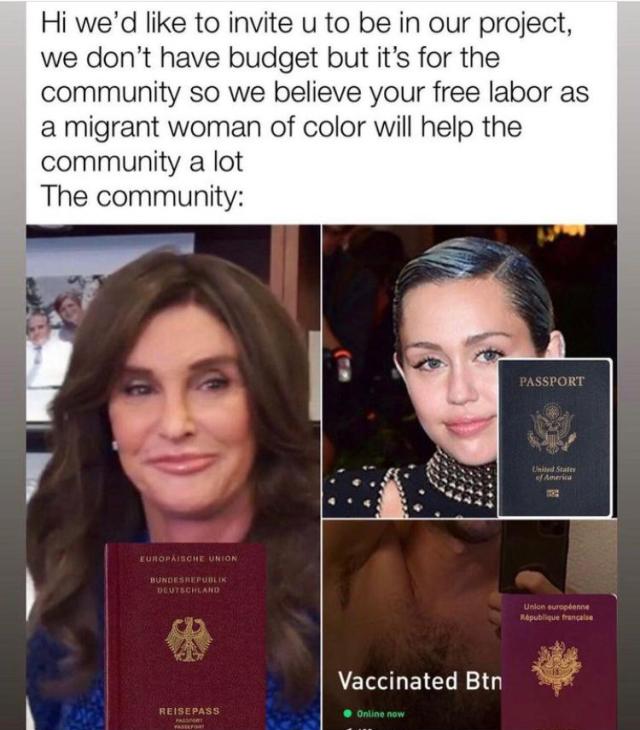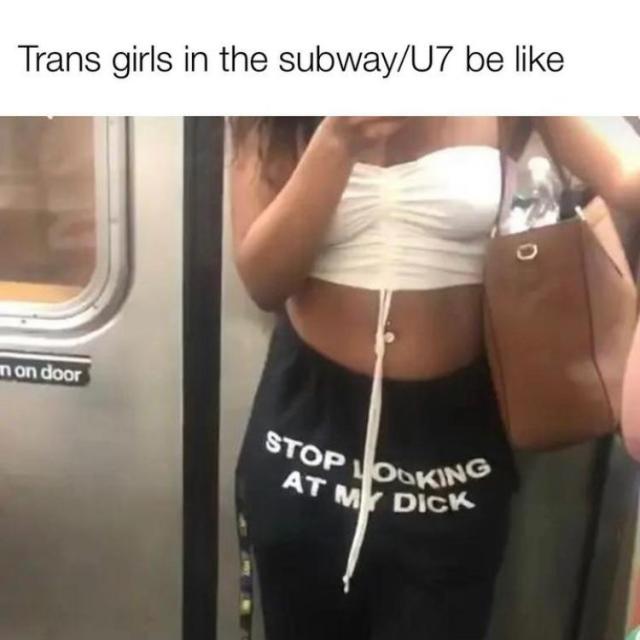“The aesthetics of opportunity brought me to where I am today”
Naya de Souza, also known as Lux Venérea, is a multimedia artist working with comedy, gastronomy, performance, and poetry. Born in the Sertão of Brazil, in Petrolina, a marginalized place inside a marginalized country from the South, her work questions normalized social stigmas and discrimination by placing the gaze of the dominant classes in the spotlight.
Migrazine: Many people know you as a meme creator. This work of yours made you known and visible in the alternative scene of German-speaking countries specifically, but also beyond. You use this platform as a place for humor, but also acknowledging the experience of migrant queer trans BIPoC folks in Europe. What are memes for you in terms of a language and an artistic practice, and how did you come to work with them?
Naya: Before becoming popular with my memes, my work dealt with the topics of desire, sexuality, freedom, and imagining our bodies in a post-religion, post-colonial, post-migration time. However, that content received a lot of censorship online. It is always about who is making the criticism, and racialized bodies are often more censored on social media. People love Greta Thunberg talking about environmental issues, but the same people are incapable of choosing Indigenous, Black women or women of color as leaders.
So, after receiving backlash, I was looking for an Instagram username that was less likely to get banned, and as a joke I tried bundaskanzlerin (in Brazilian Portuguese bunda = ass), which was similar to Angela Merkel´s account. And that is how it all started: making memes actually came from the impossibility of sharing my thoughts in other forms.
The interesting part of the meme relies on its viral nature and the amount of content and irony that it can carry. The meme makes semiotic connections between topics, symbols, and icons. That is why it is a form of art to me, even though it is not recognized as such, which I think has to do with the fact that it is hard to apprehend, to calculate in value, and sell. So institutions like museums cannot possess it.
Migrazine: Besides being a meme creator, you are also a stand-up comedian. You have mentioned how your mother has been an influence, and I was reflecting on how humor is actually a characteristic aspect of the societies we come from, where humor is the last thing we lose, even during the hardest times. Maybe as a form of being and approaching the world we live in, but also as a tool of survival and anchor to life to endure what marginalized people go through. How do you start working with humor and where do you see its potential?
Naya: Comedy has always been a form of art, together with theater, but with modernism it became a tool of very few artists and today is considered as a lower form of art, even though AI software could never replace us!
There are many comedians and poets that come from my region Sertão in Brazil, where even our accent and the way we speak is considered funny. So, comedy permeates through all my work, independently of what I do.
When I experienced bullying, comedy was my strategy to deal with it and make myself more likable to others. Recently, it has been important for me to reflect on the need to be funny, because it is directly related to my own self worth.
However, I do think there is a certain power in comedy, especially when people from the global majority occupy the center and make white people think about themselves. They tend to get petrified and feel extremely uncomfortable, and that is where the power lies; when we get to show Europeans what they have ignored historically. So, in that sense comedy is a great tool for education because it allows you to approach history in a smoother way, especially when it is uncomfortable to revisit it. And laughter is extremely honest, we can always see in the room who’s laughing, what they’re laughing at and who gets uncomfortable with the bottom of the joke. I also do comedy because Europeans aren’t used to being pointed at like that.
Migrazine: Part of your work deals with the sacred ancestral practice of cooking. The global majority of the South has a deep relationship to nutrition and the ritual of the cooking experience. Cooking means joy, union, care, and also honoring our past. La cocina reveals our agency as creators and it is, without doubt, part of the knowledge we carry from generation to generation. In a context where many non-eurocentric art forms have been erased due to colonialism, food traditions have been maintained through centuries. What relation do you have with food and cooking in your life?
Naya: When I was 12, my grandmother, who was a housewife, painter, and poet developed Parkinson‘s. At some point she got depressed and stopped eating. My aunt, who cared for her, didn't like to cook either, and she became very skinny. During my holidays I used to spend my time with her in Recife and one day I cooked for her, and she ate it. And the next day I cooked for her and she ate it again… After two weeks of cooking her entire balanced meals, I knew I was good at it because she gained her appetite again. In fact she was the first person who told me I was good at it.
Years later, I moved to Recife to do a gastronomy course. Even though it opened doors for me, it didn't really represent my culture, since we only learned Mediterranean, Italian, French, etc. cuisine. Unfortunately there is a lot of shame and non-recognition of our own traditional food. However, with time, I realized how food tells a lot about history. Every dish I cook is about somewhere I went, or someone that existed in my past who I am still meeting through food. This was also how I learned about my multiracial background and the specifics of the mixtures that exist in my region.
When I came to Europe, being an experienced chef gave me the opportunity to find employment quickly. But, after some time, when I started my gender transition, I had a very difficult time at work. I received a lot of aggression and abuse from the employers and colleagues, up to the point that I was fired for being HIV+. It was a very hard time, so I stopped cooking and started to develop myself in other areas, like comedy and performance. I usually say that the “aesthetics of opportunity,” as I call it, brought me to where I am today. Even though I work with what most represents my family lineage, namely cooking and comedy, no one would have ever thought I could make a life out of it.
Migrazine: In the context of global racism and transphobia, I feel we need to carefully balance, on the one hand, dealing and sharing awareness of these issues and, on the other, centering ourselves around what gives us the pleasure and the energy to continue working against those oppressions. How do you balance these two areas in your life?
Naya: As you say, doing my work has a lot of social pressure, added to the fact that I am living this body as a multiracial transexual migrant person. My work deals with pointing at the problems of cisheteronomativity, racism, and cultural appropriation, and people try to make me feel as if I have to solve these problems.
First, I think society should start expecting less labor from Black and Brown women and trans people, specifically. If I don't make space to enjoy my life, to laugh, to eat, to sleep, and to elevate my self-worth, life will never be enough for me. Right now, I am moving towards a space in my life where I don't have to be political all the time. I am learning to, for example, remove myself when people approach me in a club to talk about (my) oppression. It is not that I don't want to talk about it at all, I talk about it with my jokes, but marginalized identities are always expected to deal well with tragedy. So currently I am looking forward to being an author who can work with more creative freedom. I want to create things that have my complexity as a frame, not the oppression I experience. I envision myself creating sci-fi art that centers existences like mine and of the people around me, such as the work I do with House of Living Colors, which has been a way for me to develop myself in fictional areas like parody, aka telenovela, reality shows, and pop culture.
As to the things that give me energy and pleasure, I have only recently realized the importance of cooking not only as a job but to nourish myself, to feel at home, and to share that moment with others. This, together with the cathartic joy that BIPoC and trans people experience in my work are the things that make me wanna live in a world where I’m not even allowed to exist yet.
Interview developed by Lia Kastiyo-Spinósa for migrazine in May 2023.







